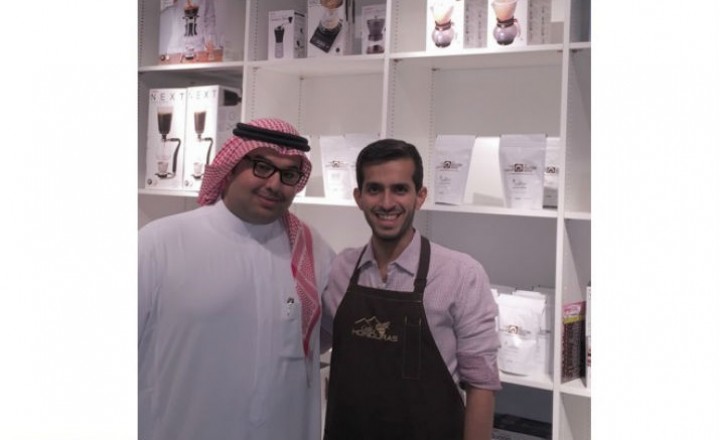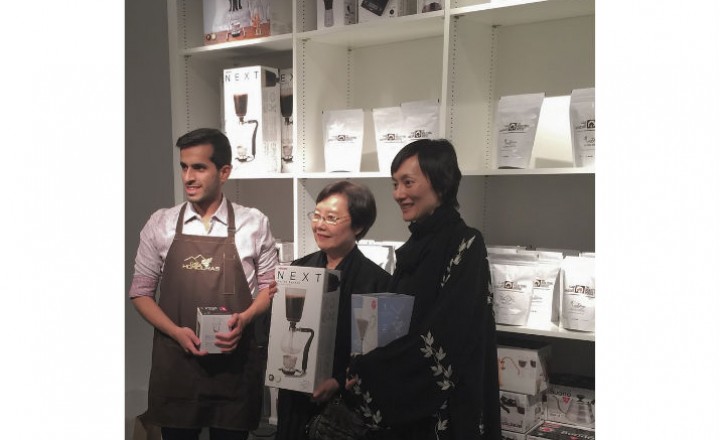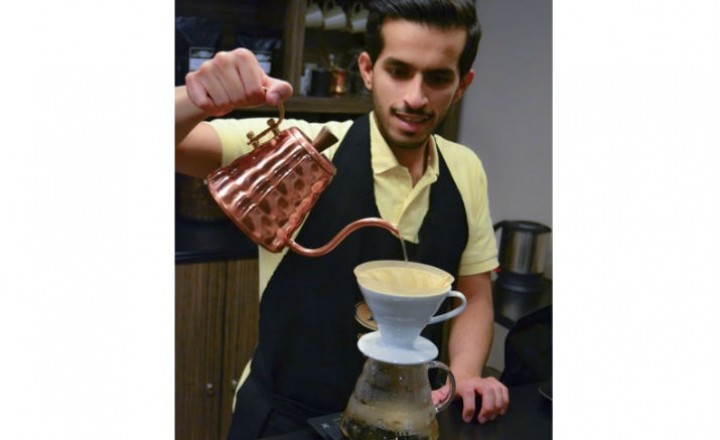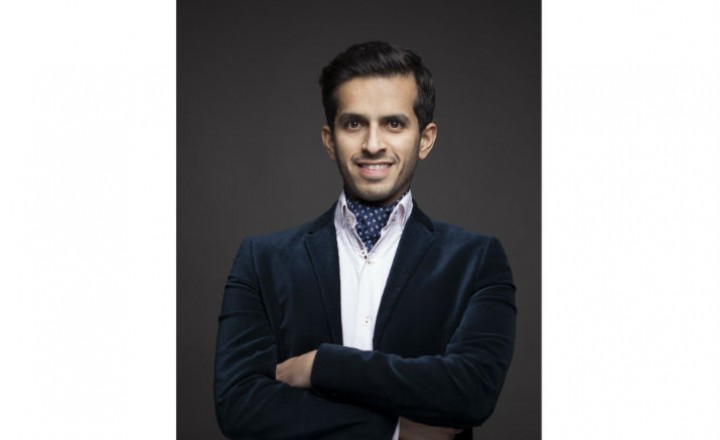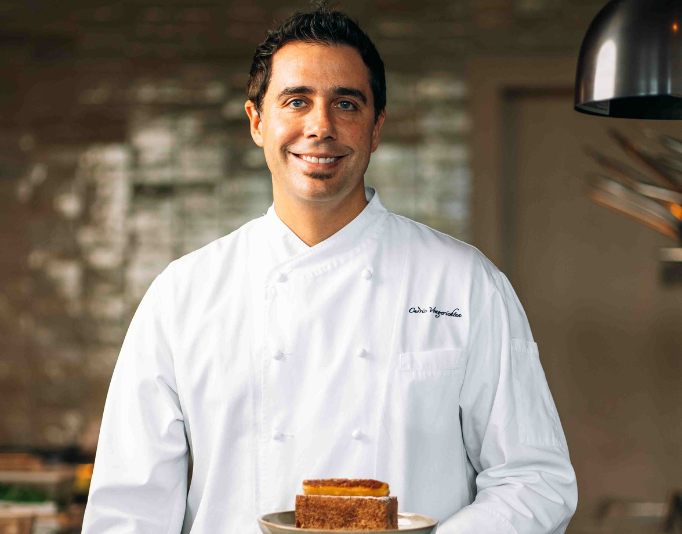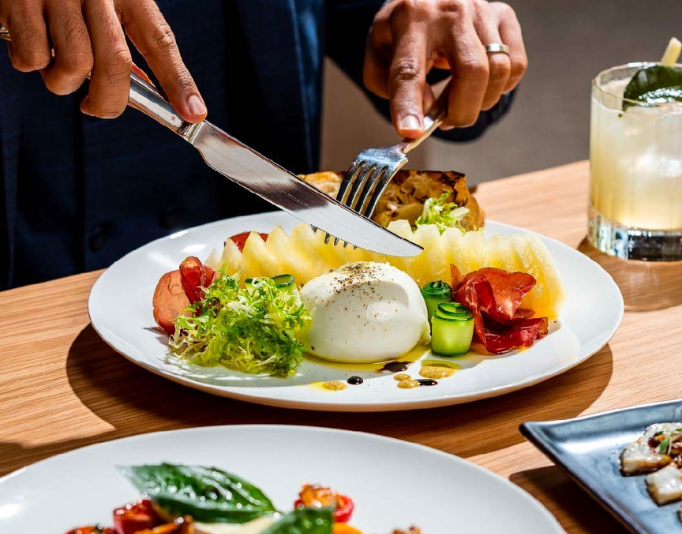We know how important coffee is to half of the world. And with the new speciality wave coffee craze that’s been sweeping over the city, we’ve decided to go undercover -sort of- and explore this new and exciting (and rather caffeinated) terrain! What better to start with than Riyadh’s very own roasting houses? This week, we sat with Osamah Alawwam to find out the nitty gritty details straight from the folks behind The Roasting House.
The Roasting House is a Saudi initiative aimed at spreading Specialty Coffee culture by offering high grade in-house roasted purpose imported coffees and easy to use coffee brewing equipment. Specialty coffee refers to beans of single origin, carefully harvested, picked, and processed to ensure only the finest natural flavours make it to the bean, these flavours are clean, present, and cater to a variety of tastes, so we help our customers in finding the right taste profile they prefer and the right equipment or machine to brew the coffee of their choice.
I spent many years [forcibly] drinking sugar loaded instant coffee to stay alert or to get rid of a headache. So for me, coffee was a bitter and unpleasant drink and the whole experience was incomplete. Until one day my mother had taken me to a small café and ordered me a Cappuccino, which was prepared according to the best Barista standards. The foam was creamy and velvety, naturally sweet, and it blended well with the bold espresso crema, it gave it the right balance of coffee & milk, palatable bitterness and sweetness. This made me realise that coffee could actually taste better! Since then, I’d self-taught myself on coffee preparation methods, milk steaming techniques, pulling the perfect espresso shots, and experimented with different coffee beans, as I was living in London I had had access to a large variety of freshly roasted coffees, specialty cafes, and roasteries, so this helped a lot. The journey began from there and I never looked back.
I follow 5 elements to help me brew an excellent cup of coffee consistently. First, I choose freshly roasted coffee, as coffee starts to lose most of its flavours 3-4 weeks after its roast date. Second, I brew using the correct equipment for the beverage I want to make, you can’t make an espresso using a filter coffee machine, nor make pour-over coffee using a French Press. Third, I use the right grind setting for the equipment & beverage, there’s no fit-for-all grind level, and if you’re unsure use this rule of thumb: The longer the coffee stays in contact with water (i.e. French Press or Arabic/Saudi Coffee) the coarser the grind, and the shorter your brewing time (i.e. espresso) the finer the grind. Fourth, I use the right coffee to water ratio, I prefer 6 grams of coffee for each 100ml water, so if my cup is 300ml in size I will use 18 grams of coffee, and adjust from there. Fifth, brewing time is paramount, you need to know the optimum time your preferred method should last, generally pour-over take 2.5 to 4 mins, espresso 25-28 seconds, French Press about 4 mins.
I like complex flavours in my coffee, most Ethiopian coffee is “natural/Dry” processed to preserve this complex fruitiness in them, so essentially Ethiopian coffees are my favourite, until I find the odd natural/dry processed coffee from other parts of the world then it becomes my favourite. Washed coffees in general tend to have more acidity and floral notes, these I enjoy in moderation.
My Cafflano Klassic 4-in-1 grinder and brewer; my mobile phone (to keep up to date with the cool stuff posted by Destination Riyadh!); and Nutella.
If I absolutely must, I’d go for Nespresso, as Starbucks’ coffee is too dark roasted to have any flavours left.
I like the pour-over method, and my favourite brewer is the HARIO V60 Ceramic to make my single cup filter coffee. I enjoy it so much to the point I became the distributor for it in Saudi!
We do not serve drinks L (Ed. Note: Our bad.)
From all over the world! Some we import directly from the farmers, most recently is a Gayo Highlands coffee from Bener Meriah in Sumatra that I actually flew back with me from the farm and helped in picking it myself.
Due to shortage of rainfall, the rise of coffee tree diseases affecting the quantities produced, and an increased international demand on specialty coffee, prices worldwide are likely to slightly increase, so we aim to buy larger quantities and avail of better prices and be less susceptible to a constantly volatile market.
No but we offer a naturally decaffeinated coffee option, using an age old method that removes 99.9% of the caffeine without affecting the taste. Our current offering is a Sumatra Mandheling and the next lot will be a Select Brazil.
It is thought that darker roasted coffee have less caffeine, and lighter roasted coffee has more caffeine. It’s an ongoing debate that I have now learnt is not very accurate, but the general consensus however is that darker roasts don’t necessarily have less caffeine. Taste-wise, on the other hand, coffee can develop more than 2000 compounds whilst roasting, these compounds affect taste, bitterness, acidity, sweetness, body and aftertaste, and it’s roaster’s job to ensure that the development of such compounds is to bring out the best of each coffee’s taste, this is why before any new coffee is launched, I try many roast levels and adjust the variables until I reach the best profile that brings out its best, then store this profile for replication each time a new batch is roasted to have a consistent taste.
An education centre that flies in experts from all over the world throughout the year!



